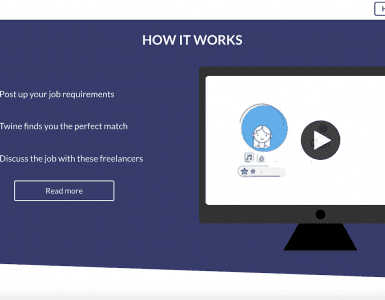When you’re hiring a freelancer, the issue of payment can feel like the elephant in the room. Both of you want to know the other will hold up their end of the deal, and that neither of you will get ripped off. What this means in practice is that your freelancer probably wants to be paid before the work, while you want to wait until after it’s complete. So, what’s the solution?
Agree on payment terms in a contract
Make sure you’ve talked about when you’ll pay before they start the work. You want a clear freelancer-client agreement that doesn’t leave any room for ambiguity and outlines when payments will be due.
Pay a deposit upfront
Deposits are great security for both parties. The freelancer knows you can put your money where your mouth is, and you know they’re committed to doing the work. This might become less necessary if you’ve worked with someone before and know them well, but if it’s a new business arrangement – or a long-term project – we’d definitely recommend paying something upfront. This might be 25% but is often 50%. You can’t blame a freelancer for wanting this either – getting 50% is better than nothing if they finish the work and then you back out. When the project’s complete, you’ll then pay off the remaining sum.
Pay in instalments
It can feel painful reaching the end of a project and realising that big sum that seemed so abstract six months ago is now due. Even if you think it’s a great idea to wait until the end of a massive project to pay your freelancer, can you be sure you’ll think that when it comes to coughing up? In these cases, definitely consider splitting the cost into more manageable instalments. The other advantage of this is that regular payments will remind you to check in on your project. This means you have the chance to give feedback and make sure everything is going to plan.
Or, pay it all at once
For the reasons stated above, this isn’t necessarily a good idea for really big projects. But for small, short-term work, it might be more straightforward to either bite the bullet and pay your freelancer the full amount upfront or pay them when it’s done. If you go down this route, it’s very important to have a watertight contract and maybe even a middleman to make sure both parties do what they’re supposed to!


Alterations
Once a project is finished, there’s a strong chance you’ll want to make a few changes. Again, the terms of these revisions need to be defined in a contract. Do you pay before or after the final changes are made? Some freelancers will only grant you a limited number of revisions and any more you’ll have to pay a set charge for. In this case, bear in mind that the agreed price will go up if you want more changes made.
Ongoing Work
If you find yourself hiring the same freelancer again and again – for example, to maintain a website or write blog posts – it might be worth hiring them on retainer. This means you’ll pay them an agreed amount each month and in return they’ll do set tasks. This might mean certain monthly tasks (like blog posts) or that they’re on hand for emergencies. Other services might include faster work or consulting for your business. This is a great arrangement that benefits both you and the freelancer, as you’re giving them extra security. Again, make sure the exact terms are agreed upfront and don’t expect services you haven’t agreed on. And get your monthly payment in on time!
PAY!
No excuses – if they’ve done the work, pay them well and pay them on time.



